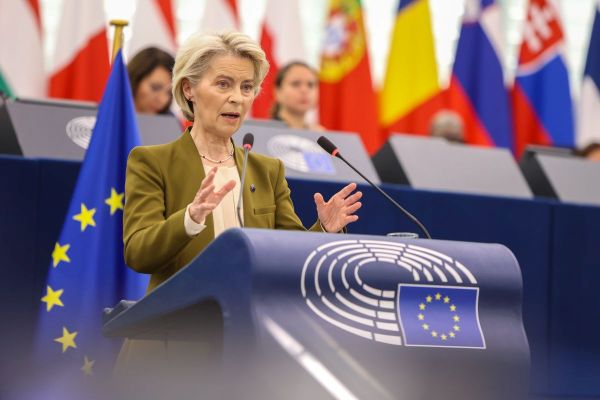The European Commission is moving on with its proposal to the European Council to start punishing Israel for its violent actions in Gaza, following comments made by Commission president Ursula von der Leyen during her State of the European Union speech.
Before calling for sanctions, von der Leyen said that “the horrific events taking place in Gaza on a daily basis must stop. There needs to be an immediate ceasefire, unrestrained access for all humanitarian aid, and the release of all hostages held by Hamas.”
The measures are a combination of sanctions and the suspension of the trade relationship. For the ladder, the Commission is proposing to halt trade-related provisions of the association agreement between the bloc and Israel. The basis for this stop is the breach of the agreement made by Israel, specifically the provisions for respect of human rights and of democratic principles. Commenting on the deterioration, High Representative Kaja Kallas said: “We all agree that the situation in Gaza continues to head in the wrong direction. We must leverage the tools at our disposal to pressure the Israeli government into changing course.” The halt will see Israeli goods lose their preferential treatment and be subject to duty taxes like any third country with which the EU has no trade deal. The combined trade relationship in goods between Israel and the EU is worth around €42.6 billion, with the EU responsible for around 32% of the total goods traded by Israel.
In addition, the Commission wrote a proposal to sanction extremists under the EU Global Human Rights Sanctions Regime. In particular, violent Israeli settlers, five Israeli associations pushing for illegal settlements, certain Israeli ministers and also ten members of Hamas leadership. Those sanctioned individuals will be banned from entering the bloc.
Both proposals will require approval from the Council, but while the sanction on trade needs a qualified majority, the sanctions on individuals need a unanimous vote. The Commission is also moving to sanction Israel without Council approval, by putting on hold bilateral support, except for those involved with civil society and the Holocaust Remembrance Centre Yad Vashem.

